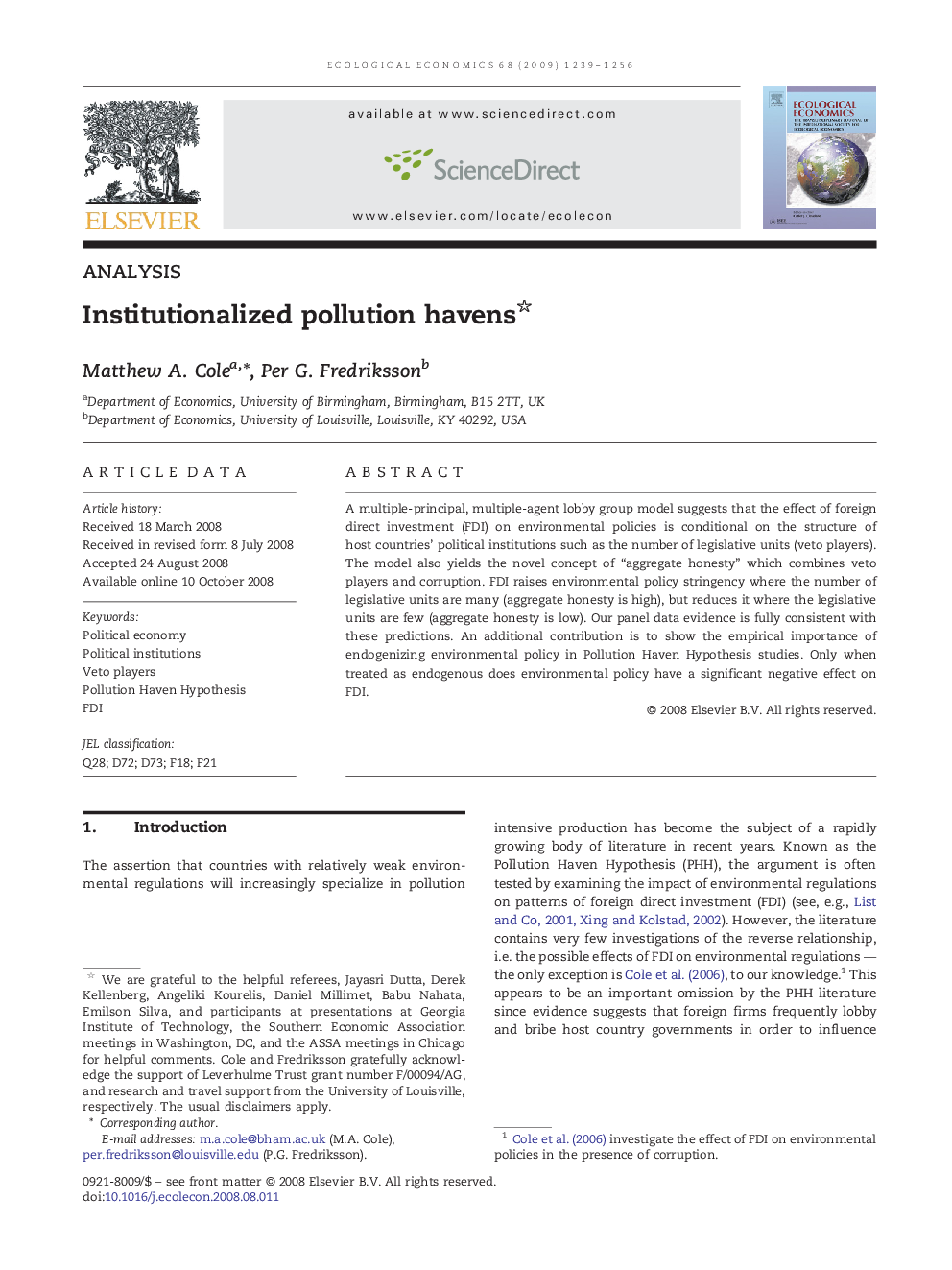| Article ID | Journal | Published Year | Pages | File Type |
|---|---|---|---|---|
| 5051389 | Ecological Economics | 2009 | 18 Pages |
A multiple-principal, multiple-agent lobby group model suggests that the effect of foreign direct investment (FDI) on environmental policies is conditional on the structure of host countries' political institutions such as the number of legislative units (veto players). The model also yields the novel concept of “aggregate honesty” which combines veto players and corruption. FDI raises environmental policy stringency where the number of legislative units are many (aggregate honesty is high), but reduces it where the legislative units are few (aggregate honesty is low). Our panel data evidence is fully consistent with these predictions. An additional contribution is to show the empirical importance of endogenizing environmental policy in Pollution Haven Hypothesis studies. Only when treated as endogenous does environmental policy have a significant negative effect on FDI.
